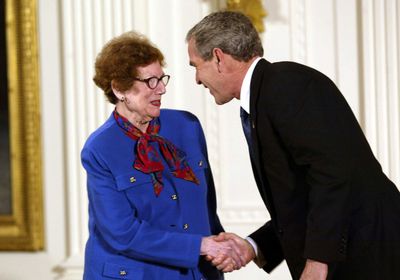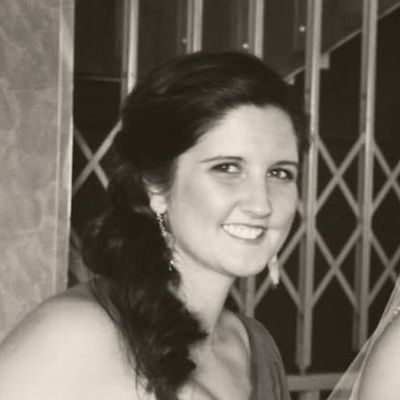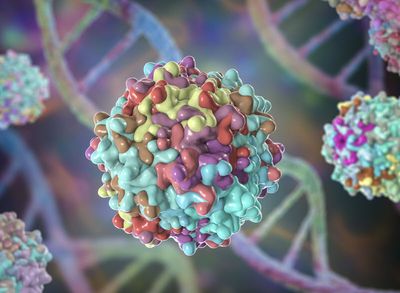ABOVE: Evelyn Witkin in 2002, receiving the National Medal of Science from President George W. Bush National Science Foundation, The National Science & Technology Medals Foundation
Many cancer treatments and genetic therapies rely on a cell’s ability to repair damaged DNA. The mechanism behind this SOS response was discovered by geneticist Evelyn Witkin, who died on July 8 at the age of 102 at a rehabilitation facility following a fall.
Born March 9, 1921 in New York City, Evelyn Witkin, née Maisel, was the daughter of a pharmacist and homemaker. Her father died when she was 3 years old, according to an interview Witkin gave PLOS Genetics in 2012.1 At her stepfather’s behest, she attended a prestigious all girls school and accelerated through it, graduating at 16.
See “Lasker Winners Announced”
Witkin attended New York University to study zoology and had intended to stay for graduate school, but her political advocacy changed that. She was one of the primary protest organizers who disagreed with the university’s policy to bench Black athletes during games against segregated Southern schools in the throes of the Jim Crow era. Ultimately, she was suspended in her senior year, pushing her graduation into the summer. Her prospects at NYU had dried up, so she went to Columbia University for her doctoral studies instead.
“Everything good that has happened to me professionally since then is a result of having being bounced out of college in my senior year,” Witkin said in a 2000 interview.2
At Columbia University, Witkin met the legendary evolutionary biologist Theodosius Dobzhansky and became his first female graduate student. Although Witkin hadn’t previously taken microbiology courses, Dobzhansky fostered her interests and encouraged her to seek professional opportunities at Cold Spring Harbor Laboratory (CSHL) in the summer.
In the summer of 1944 at CSHL, Witkin irradiated E. coli with UV light and found that while many of the colonies died, a few survived against all odds. She surmised that the survivors must have acquired mutations that protected them from the high dose of radiation. Witkin isolated those mutated colonies and started investigating how the bacteria detected genetic damage and worked around it.
This began a line of study that lasted several decades and eventually determined which genes are necessary for DNA repair and how the cell coordinated that response. Witkin’s work allowed researchers to better understand how mutagenesis works in cancer, leading them to identify targets for treatment.
In 1945, Witkin returned to CSHL to complete her thesis, then stayed on as a staff member until 1955. She later joined the staff of Brooklyn’s Downstate Medical Center, part of State University of New York, until 1971 when she became a professor at Rutgers University, where she stayed until the end of her career. Witkin was forced to retire in 1991 due to Rutgers’ mandatory retirement policy for staff at 70 years of age.
See “Damage Control”
Witkin received many accolades throughout her career. She was elected into the National Academy of Sciences in 1977, the American Academy of Arts and Sciences in 1978, and the American Association for the Advancement of Science in 1980. In 2002, then-President George W. Bush presented her with the National Medal of Science. She shared the 2015 Lasker Award for Basic Medical Research with Stephen Elledge “for discoveries concerning the DNA-damage response—a fundamental mechanism that protects the genomes of all living organisms.” She was also awarded the Wiley Prize that same year. In recognition of her 100th birthday in 2021, the Waksman Institute at Rutgers University honored Witkin by naming a laboratory after her.3
She is preceded in death by her husband Herman and son Andrew. She is survived by her son John, along with many grandchildren and great-grandchildren.
REFERENCES
- Gitschier, J. It Was Heaven: An Interview with Evelyn Witkin. PLOS Genetics. 2012.
- Evelyn Witkin on Racial Segregation at NYU–Columbia University. Oral History Collection, Cold Spring Harbor Laboratory. 2000.
- Lally, R. Rutgers Celebrates World-Renowned Geneticist Evelyn Witkin as She Turns 100. 2021.







